How Ukrainians find vital resources to fight and help others after two years of full-scale aggression
Kyiv • UNN
How Ukrainians find vital resources to fight and help others after two years of full-scale aggression

Emotional burnout and constant fatigue are what most of us feel after two years since the Russian aggressor's full-scale invasion. During this time, Ukrainians have gone through a lot, but they have not given up, and continue to work and fight on.
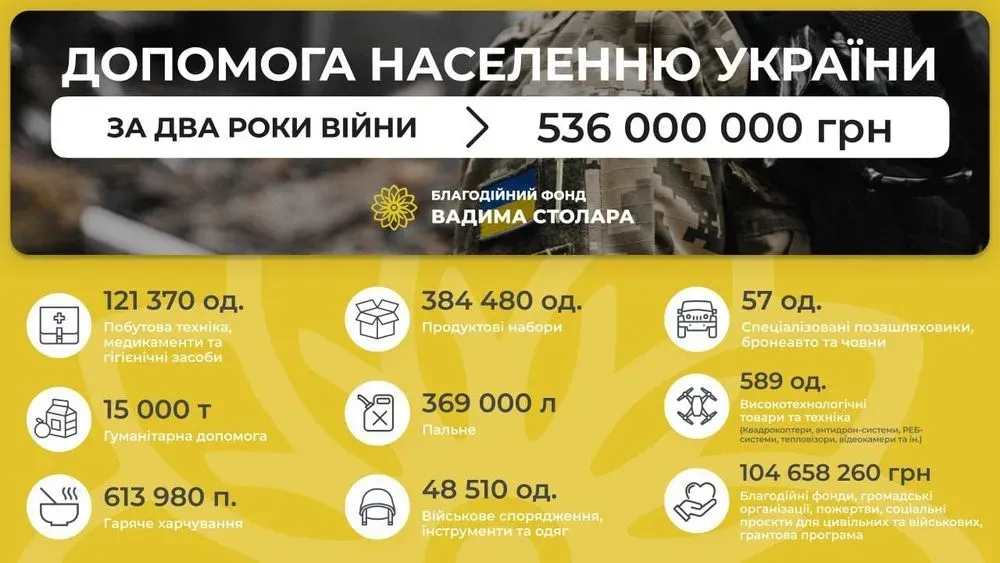
We are well aware that we cannot stop now, that we need to do, if not more, then certainly not less than we are doing now - each in his or her place. And Ukrainians are proving once again that they are the strongest, because even in such circumstances, many of them have the strength to volunteer and help others.
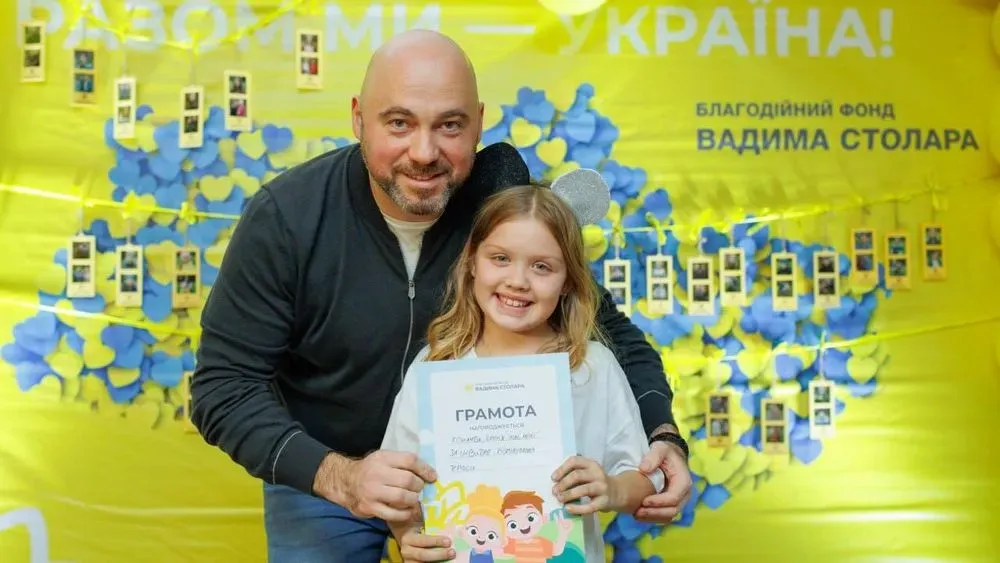
To understand what drives such people, where they find their resources, where they get their strength, and how they manage to stay motivated, we talked to representatives of the team of the Vadym Stolar Charitable Foundationwho have been helping the military and civilians on a daily basis for two years now, and they are not going to stop. After all, internally displaced persons, families who have lost one of their parents, are homeless, and other vulnerable categories continue to need help. The defenders are also constantly receiving requests for various types of assistance - from seasonal ammunition and equipment to drones and cars.
Andriy, who oversees the large-scale ++ for the Armed Forces project, which combines all areas of assistance to the defenders, admits that since the beginning of the full-scale invasion, he has been depressed by the realization that wherever you are and whatever you do, you are always in danger:
"I have to work with this all the time to stabilize my emotional state. Because when you witness the consequences of warfare, your thoughts simply devastate you and actually deprive you of strength. And for me, the main challenge for two years has been to constantly update this resource in order to continue volunteering. After all, our direction in the Foundation is very important, we buy and send everything necessary to the soldiers at their request. This includes seasonal ammunition, optical devices, unmanned aerial vehicles, and anti-drone systems. We search for, purchase and deliver armored vehicles and off-roaders to the frontline all over Europe. We need all this here and now, and we cannot afford to stop and relax. But this is also what keeps us motivated - our daily involvement in helping our defenders.
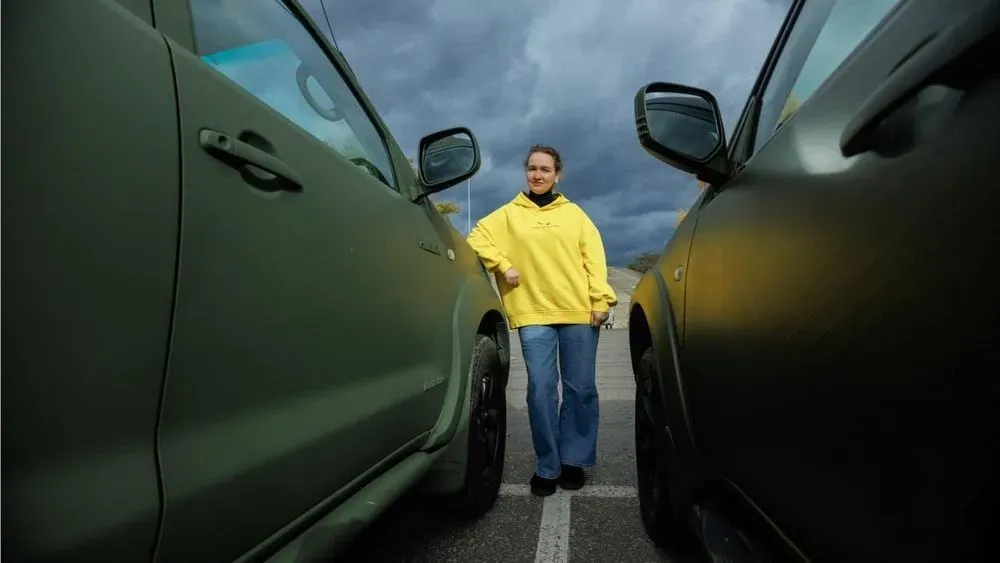
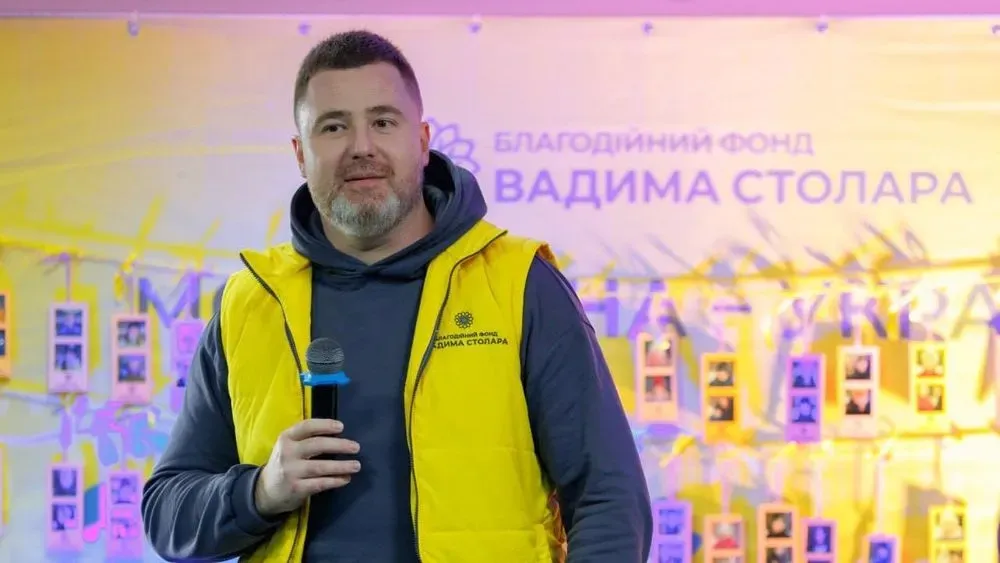
Yulia, the curator of the Foundation's grant program, was truly inspired by a new, very promising direction that unites charitable organizations across Ukraine and allows us to help much more.
"We have already conducted two projects, with UAH 1 million distributed among the winners of the competition - organizations that deal with physical rehabilitation and psychological recovery of military and civilians. "I get a great burst of energy from constant communication with partners, from their perseverance and fire in their eyes. From the realization that together we are doing a great and very necessary thing. These emotions charge like a power bank and are my main motivator," emphasizes Yulia.
She also gives another piece of advice: to avoid panic, it is very important to check the incoming information today. Because Russian ISIS is now very widespread, the Internet and telegram channels are filled with it, and even some opinion leaders are being recruited. Therefore, it is important to consume news only from trusted sources. This approach helps to weed out hostile propaganda and panic, and to keep yourself in check.
Lawyer Kristina notes that it was the close-knit work at the Foundation that gave her the strength to keep going at the beginning of the invasion:
"Today, the biggest challenge for me is to learn, develop, and work between shelling and news from the frontline. After these two years, I have a clear understanding that very simple things fill me up: taking care of myself, my physical and mental state, healthy sleep, walks in nature, time with family and friends, and sometimes just being alone with a book or watching a movie. And I am motivated by the understanding that you are part of the Foundation's large and multifaceted assistance to people - it gives me the strength to work further. As a lawyer, I am also responsible for the Legal Advice project, which provides consultations to certain categories of citizens. It is very difficult for a person who is not involved in legal activities to understand the legislation, especially now that it is not static and is constantly changing as it relates to the mechanisms of various social benefits and compensation. Since the project was launched, we have managed to process a large number of requests and help those who have contacted us to understand the complexities.
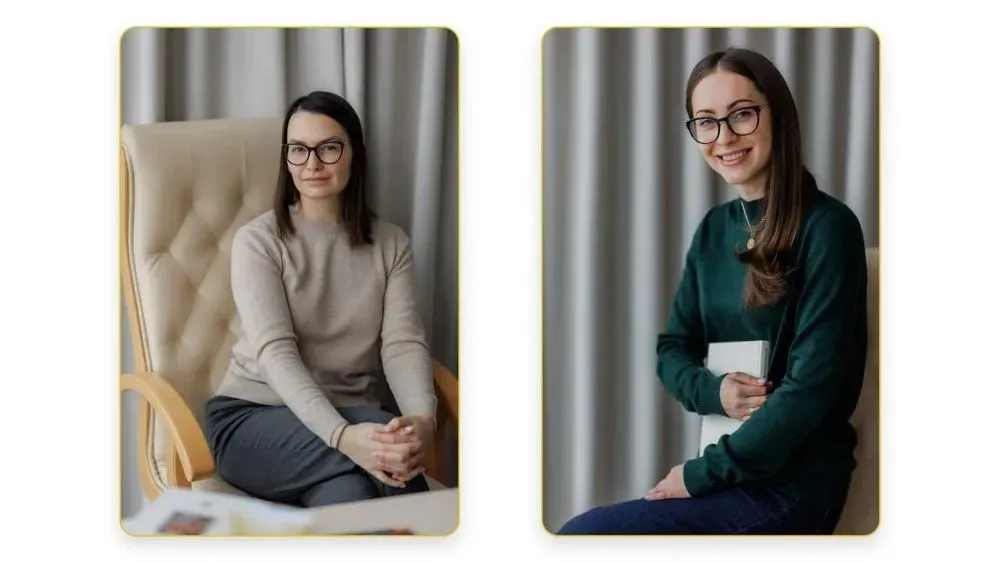
Lera, the curator of the Restore project, remembers the first days of the large-scale invasion and her confusion. On the one hand, she could not believe that war was possible in Europe in the 21st century. On the other hand, she realized that she had to do her best for the country in this situation.
"In the end, I decided for myself that I don't want to run away from my country, because this is my land, this is my home, my mother, where I was born, where I gave birth to my children. Immediately after this decision, my thoughts came to order, and I realized that I had to get involved in helping others. It also helped me to break away from scary thoughts, and it still keeps me in mental balance. And even though today there are really few reasons for positive emotions, I still find them in communication with other volunteers, with the participants of our projects, and "Vindovysys" in particular. It helps mothers with children who have lost their husbands in the war or have been left homeless, get a second wind and the strength to move on. We have already helped 1500 families, and their sincere emotions and gratitude are truly inspiring. This project has been nurtured with great love, it is a part of me, and we will continue to do it as long as it is needed. For the sake of our women, our children, for the sake of the future of Ukraine," the volunteer says.
Another project that Lera contributed to and had a profound impact on her was the book Stories of the Strong:
These are real stories of Ukrainians who survived the hell of the occupation, whose homes were actually passed through by the frontline. We collected them and published them as evidence of Russia's crimes and what Ukrainians are going through. I personally talked to people, felt this pain, fear, and hatred for the occupiers. Each of these stories went through me and left a scar on my heart. But I am supported by the fact that I realize the importance of this case, because politicians and ordinary people all over the world need to know these stories.
It is worth adding that during the war, Lera became a mother for the third time - she gave birth to twins. Despite everything, life goes on and wins!
Roman, a photographer, says that he started out as a volunteer with the Vadym Stolar Foundation. Having sent his wife and daughter abroad at the beginning of the invasion, he felt devastated, but found solace in helping others.
"At the beginning, we were buying food and medicine. It was endless loading and unloading, packing and traveling. At first, we delivered aid in Kyiv, then the scope of our trips expanded to the region, so I visited Bucha, Irpen, Katyuzhanka, Andriivka, Peremoha, and some villages in Ivankiv district. In April 2022, we started traveling outside the Kyiv region. We are still delivering food packages and other aid to this day. I always take a camera with me when I travel to document the horrors of war and the heroic resilience of our people. In addition to traveling to the regions, I am involved in other projects of the Foundation, including the most favorite and important for me - "Restore". My task in this project is to leave pleasant memories for the families of the participants with the help of photography. And the fact that I manage to cheer them up and make them smile with my photos is the most important motivator for me," Roman says.
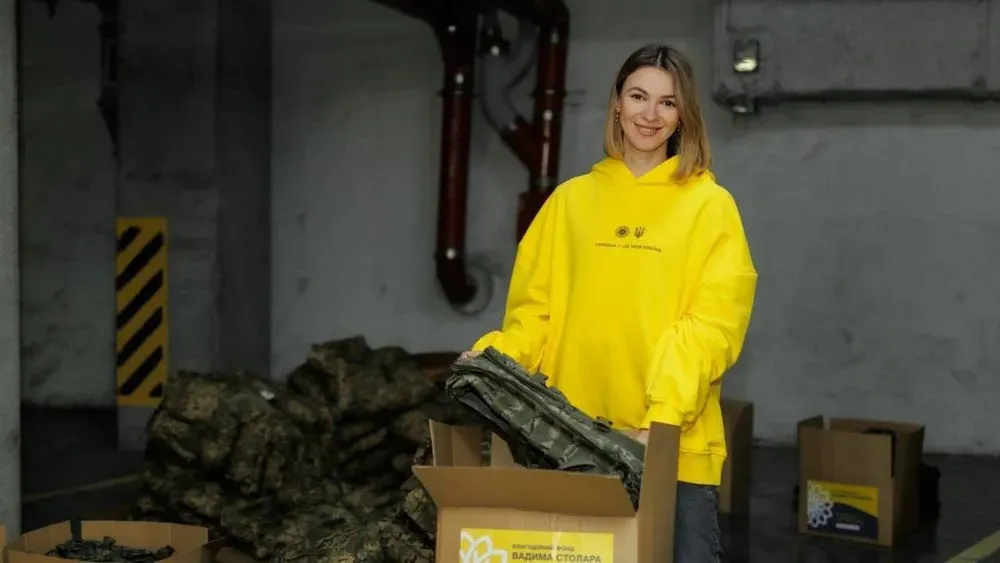
Psychologist Alla shares that her work at the Foundation and volunteering actually saved her from confusion at the beginning of the full-scale war. From the very first days, the team worked for a common goal, and everyone did everything they could to help others.
"This remains the same now, but a lot has changed for me personally over the past two years, because with the opening of the psychological support department, I was entrusted with its leadership. I gained a lot of new competencies, including communication and managerial ones, because I had to negotiate a lot to cooperate with other psychologists and volunteers, and organize various therapy groups. We are currently implementing the Resilience project, providing support, in particular, to those who are waiting for soldiers who are now in the Armed Forces and defending our country. Every day I make sure that our projects are useful for people, that they support them, and perhaps even save them. This gives me the resources and strength to continue working," says Alla.
According to Natalia Prykhodko, a volunteer of the Foundation: "Today it is difficult for everyone, but the Foundation's team understands that many people who need help depend on us. We realize how important it is to maintain all our projects and even expand right now. Because both the frontline, where the situation is very difficult, and the rear, where people are losing their strength and faith, require more and more of our attention and efforts. We are constantly encouraging each other, talking, sharing what hurts. This also helps us to get together and continue to work hard for the benefit of people and the country.
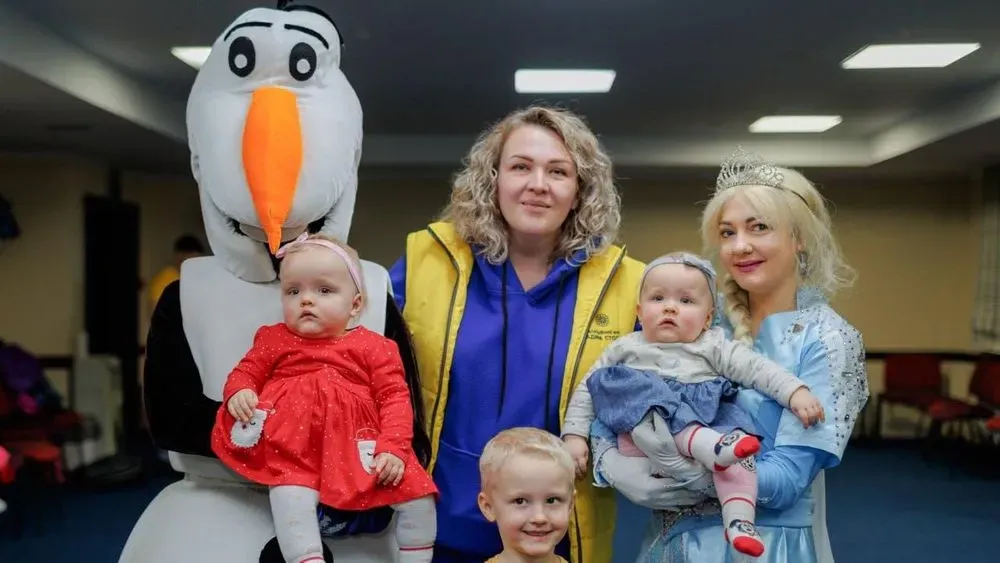
We also contacted Vadym Stolar to find out how the Foundation has survived these two years, how its work has changed, and what it plans to do next.
"Over these two years, the Foundation's activities have become truly systematic. We have established processes, interaction and focused on two main areas - comprehensive support for our defenders and psychological support for Ukrainians affected by the war. This allowed us not only to increase the effectiveness of our assistance, but also, no less importantly, to preserve and strengthen the energy, resources and motivation of the Foundation's team, to provide psycho-emotional recharge for its representatives," Vadym Stolar emphasized.
Sociologists confirm the relevance of psycho-emotional recharging not only for volunteers but for all Ukrainians. Thus, according to February research by the Rating Group, fear, fatigue, uncertainty, and other negative emotions have increased among Ukrainians. And an important challenge for civil society is to reverse this situation and restore people's mental strength. There is potential here because, according to the same survey, despite everything, 85% of Ukrainians continue to believe in our victory.
Over the two years of large-scale aggression, the Foundation has spent UAH 536 million to help Ukrainians. This money was used to purchase and deliver more than 120,000 household appliances, medicines and hygiene products, 15 tons of humanitarian aid, more than 380,000 food packages, and more than 600,000 hot meals. We also provided the defenders with about 50,000 pieces of military equipment, tools and clothing, 370,000 liters of fuel, almost 600 pieces of high-tech equipment, such as quadcopters, anti-drone systems, electronic warfare systems, thermal imagers, video cameras, and 57 specialized off-road vehicles, armored vehicles and motor boats. The Vadym Stolar Foundation has allocated about UAH 105 million for social projects for civilians and the military, a grant program, support for other charitable foundations and public organizations, and donations.